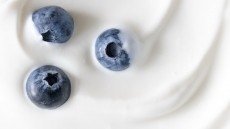No cancer link found in new aspartame study
does not increase the incidence of tumors in mice, but the
scientists point out that this does not necessarily mean it is not
a carcinogen.
The new research was conducted by the National Toxicology Program (NTP) in a move to evaluate the product's toxicological and carcinogenic potential after earlier studies had revealed it to increase brain tumors.
The tests were conducted on three groups of genetically modified mice, whose genes had been altered to predispose the animals to cancer.
During the nine month research period, groups of 15 male and 15 female mice were fed diets containing aspartame at significantly higher doses than the average levels consumed by humans.
And despite the appearance of neoplasms and papilloma -abnormal tissue growth-, which was also observed in mice in control groups, the researchers concluded that the studies showed "no consistent carcinogenic response that would raise concerns about the safety of this widely consumed artificial sweetener."
However, the NTP, which is part of the US Department of Health and Human Services, also pointed out that in its tests for carcinogenic activity, "negative results, in which the study animals do not have a greater incidence of neoplasia than control animals, do not necessarily mean that a chemical is not a carcinogen, inasmuch as the experiments are conducted under a limited set of conditions."
And because the use of genetically modified mice is still a new testing model, "there is uncertainty whether the study possessed sufficient sensitivity to detect a carcinogenic effect," the scientists concluded.
Most studies conducted on genetically modified mice to identify potential carcinogens take place over a period of six months, which may be an adequate period to identify relatively potent carcinogens. However, this may not be the case when it comes to weaker carcinogens.
In order to "partially address" this issue, the NTP increased the testing period to 9 months.
Another potential drawback of the testing method is that the control mice in one of the genetically modified models used developed high incidence of benign or malignant tumors, something that may have interfered with the clarity of results.
"The high background papilloma incidence in controls would limit the ability to detect a weak response that lacked a dramatic increase in tumor multiplicity," said the scientists.
Overall survival rates and body weight of the mice were not affected by aspartame consumption.
Aspartame is currently used in a variety of food and beverage items, such as yogurt, desserts and carbonated drinks. The US Food and Drug Administration (FDA) first approved it for use in certain products in 1974. In 1996 its use as a general purpose sweetener was approved.
Current estimation sets the nation's total aspartame consumption at 8,040 tons per year, with the acceptable daily intake set by the FDA being 50mg aspartame/kg body weight.
The recent NTP research on the product was conducted in response to growing concerns over its links to cancer.
Previous research sited by the NTP study includes evidence that the consumption of aspartame together with carbohydrates could interfere with the normal development of the nervous system in young children.
Since 1988 the FDA has received around 4,000 consumer complaints linked to the sweetener, with symptoms including headaches, dizziness, mood change and vomiting.
The Centers for Disease Control (CDC) published an evaluation of reactions to aspartame and noted that neurological and behavioral symptoms were most frequently reported. However, the CDC concluded that it could not make a clear association between aspartame consumption and these adverse effects.
The most recent stir for the aspartame industry came last year when researchers at the Ramazzini Institute for cancer research in Italy conducted a study that linked aspartame to the development of lymphomas and leukaemia in female laboratory animals.
But despite coming under constant attack by consumer groups and health organizations, the industry stands firm, citing a body of supportive scientific evidence as well as conducting research of its own.
In 2001, aspartame manufacturer NutraSweet collected post-marketing information on the sweetener and reported that there was no evidence of a link between aspartame and adverse health effects.
And manufacturer Ajinomoto was quick to jump on the latest research by NTP, which it says "reconfirms the safety of aspartame."











